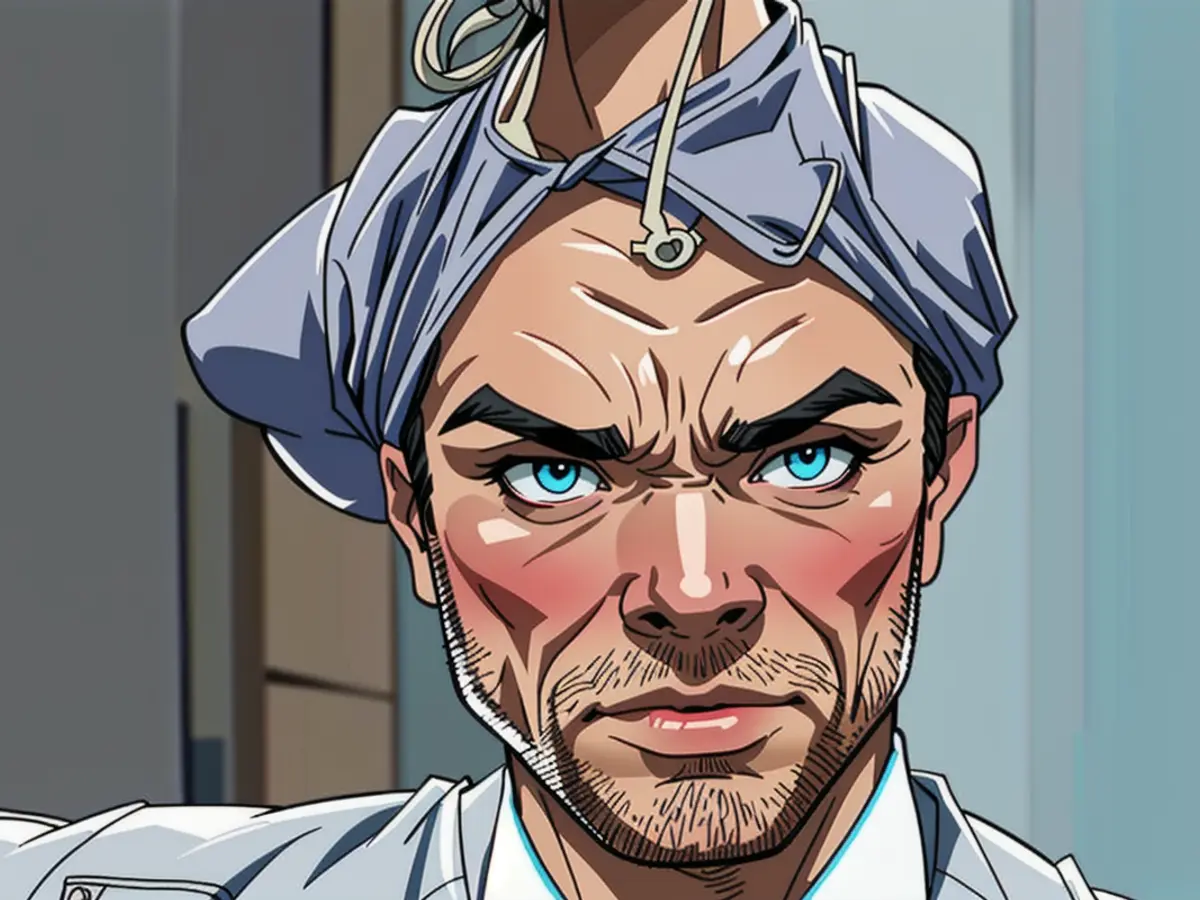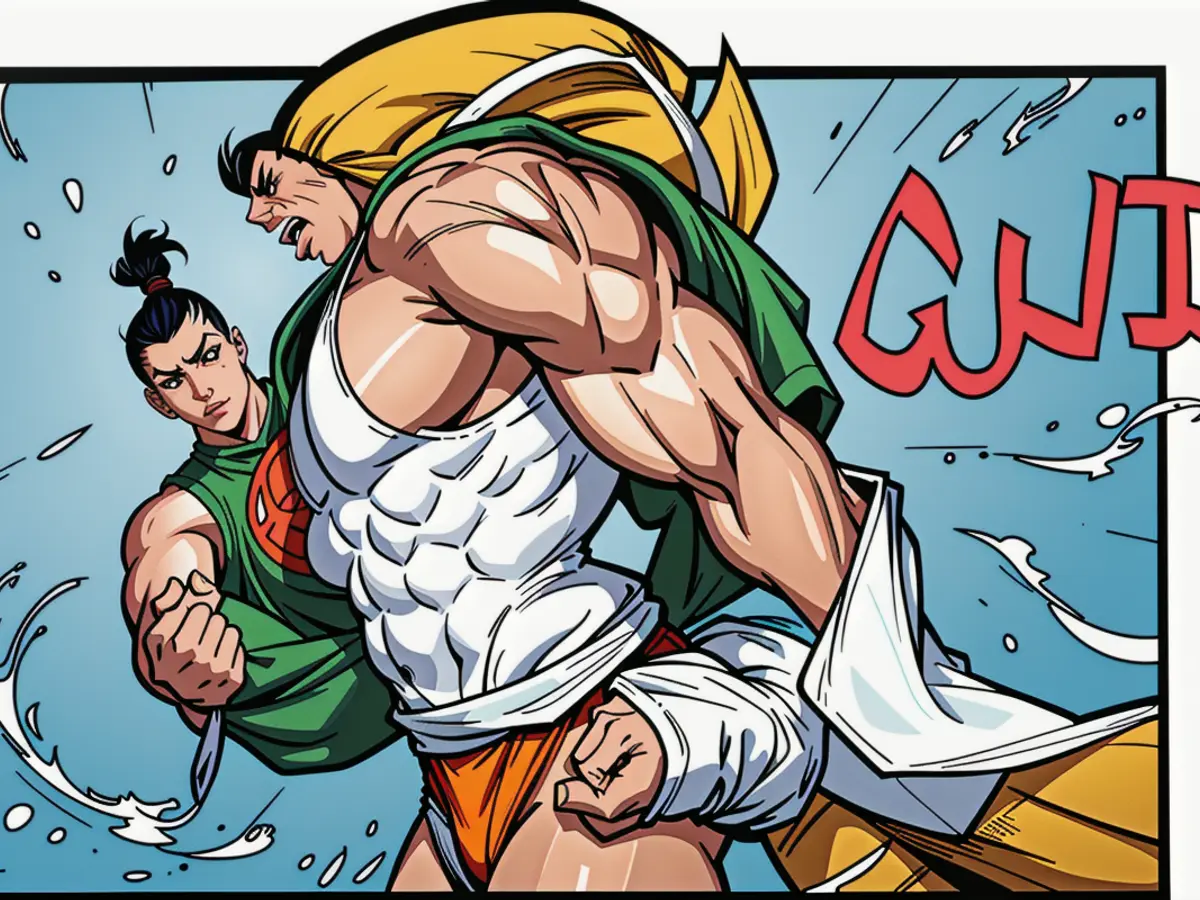Manchester United's Sir Jim Ratcliffe's Bold Gamble Yields Success
Rewritten Article:
Billionaires aren't typically seen sweating it out in the public eye. Yet here we have Sir Jim Ratcliffe, Manchester United's minority shareholder, volunteering to face the music, ready to take a grilling from ex-player Gary Neville. This is an unusual move for English soccer owners who usually keep their distance from the media.
But our man Jim agreed to sit down and chat, and boy, did he need a good defense. Neville didn't pull any punches, questioning the cost-cutting measures made in recent months that seemed inexplicable when there was obvious waste elsewhere.
"That's not the players from the last decade, they're from the '60s and '70s," Neville pointed out, questioning the logic behind the cuts.
"Why would that not be looked at as a shopping list of things with health warnings?" he asked.
Sir Jim didn't shy away from the interrogation. He explained that Manchester United has been overspending for the past seven years, and if it kept up this trend, the club would run out of cash by the end of 2025—a situation no one wants.
"If you do that for a prolonged period of time," Sir Jim told Neville, "it ends up in a very difficult place, and, for Manchester United, that place ended at the end of this year."
It's a grim reality, and it's clear that something needs to change. But it's a challenge the billionaire is ready to tackle head-on.
"Spending cliches" couldn't fend off criticism when the cuts were announced. However, the details behind the approach are tough to argue with. Sir Jim made it clear that there's no such thing as a free lunch, and most people in the UK don't get them from their employers.

"Do you want to run an organization as the press would like you to run it, or run it the way you think is the best?" the INEOS founder told Neville. "My mother would say: 'You look after the pennies, the pounds will look after themselves.'"
It's a brave move to face the media, and while there were moments Sir Jim might rather forget, he effectively made his case to the die-hard United fans who are footing the bill for these changes.
"They're paying for the free lunches," he ended the interview, a stern reminder that tough decisions have to be made.
Enrichment data:
Manchester United is facing financial challenges, including a substantial debt estimated between £500 million and £600 million, as well as financial strains exacerbated by high costs such as interest payments and player compensations. The club's reliance on European competition, particularly the Champions League for revenue, is crucial, with missing out on it potentially leading to substantial losses. Cost-cutting measures, such as job cuts, ticket price increases, and reducing staff benefits, are part of a larger strategy to address financial difficulties while aiming for better on-field performance.
Sir Jim Ratcliffe's involvement in Manchester United, through his company INEOS Group, represents a significant step for the club. However, specific details about discussions regarding financial cuts or strategies from interviews between Sir Jim and Gary Neville are not available in the recent search results.
Recovery strategies for Manchester United could involve improved on-field performance, changes in ownership or investment, commercial growth, or sustainable financial management to prioritize strategic investments and reduce debt.
- In an unusual move for English soccer owners, Sir Jim Ratcliffe, Manchester United's minority shareholder, sat down for a chat with ex-player Gary Neville, a conversation that was needed given the criticism over the cost-cutting measures at the club.
- Amidst the financial challenges Manchester United is facing, including a substantial debt and high costs, Murdoch's blunt questions to Sir Jim about the inexplicable cuts pointed towards the need for a shopping list of items to be reviewed with health warnings.
- As Manchester United struggles to handle its financial troubles, maybe tough decisions like the ones Sir Jim is implementing, despite receiving criticism for "spending cliches," are necessary to ensure the club's long-term sustainability, much like the familiar advice: "You look after the pennies, the pounds will look after themselves."





